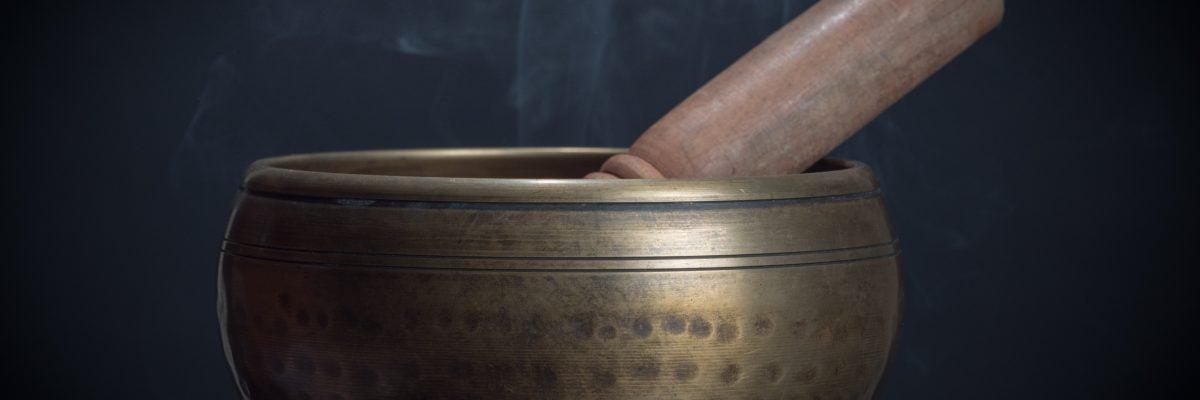
Catholics often appeal to Revelation 5:8 as support for the intercession of the saints:
And when he had taken the scroll, the four living creatures and the twenty-four elders fell down before the Lamb, each holding a harp, and with golden bowls full of incense, which are the prayers of the saints.
Since the Bible reveals that the saints in heaven offer our prayers to God, it’s reasonable for us to pray to them—that is, to make our requests known to them and ask them to pray to God for us.
But most Protestants don’t accept this interpretation, and they offer a few counters. Let’s look at one of them here and see if we can offer a reasonable response.
Some Protestants question the assumption that the “prayers of the saints” refers to petitions that Christians make while on earth. They assert that “saints” refers to all the heavenly inhabitants surrounding the throne of God and the Lamb mentioned in Revelation 7:9-10) and that the “prayers” refer not to petitions but to praises that these heavenly saints offer to God and the Lamb (Rev. 7:10).
Let’s suppose, for argument’s sake, that the “prayers of the saints” does involve the praises of those who surround the throne. This doesn’t mean that Christians on earth must be excluded from their number. In fact, we have good reason to think that they are included.
Consider that out of the fifty-nine times the term saints is used in the New Testament only once does it refer to Christians in heaven: Colossians 1:12. All the other times, thirteen of which are found in the book of Revelation, it’s used to refer to Christians on earth. That alone gives us good reason to think that Christians on earth are included among the “saints” mentioned in Revelation 5:8.
Another reason is that the Bible directly associates the prayers of the faithful on earth with incense. For example, the Psalmist writes, “Let my prayer be counted as incense before thee, and the lifting up of my hands as an evening sacrifice!” (Psalm 141:2). If the Bible describes prayers being offered in heaven under the form of incense (Rev. 5:8), and the Bible explicitly refers to prayers from on earth arising to God as incense (Psalm 141:2), then we have biblical grounds for numbering the prayers of Christians on earth with the “prayers of the saints.”
One more point: this phrase, “prayers of the saints,” would have been familiar to any Jew who read the book of Tobit. It comes from Tobit 12:15, where the angel Raphael says, “I am Raphael, one of the seven holy angels who present the prayers of the saints and enter into the presence of the glory of the Holy One.”
The context reveals that the “prayers of the saints” included the prayer of Tobit and his daughter-in-law. In verse 12, Raphael tells Tobit, “[W]hen you and your daughter-in-law Sarah prayed, I brought a reminder of your prayer before the Holy One.” And so here we have explicit scriptural evidence that the phrase “prayers of the saints” includes the prayers of God’s righteous on earth.
Now, I know you’re probably thinking, “But Protestants don’t accept Tobit as inspired.” That’s true (and unfortunate!). But Tobit still is a historical source for Jewish belief, and at the very least is helpful in trying to discern what a Jew, like John, would have had in mind when he wrote, “prayers of the saints.”
Our appeal to Tobit becomes even more reasonable when we read in Revelation 8:3-4 that the “prayers of the saints,” which are mingled with incense, rise to God from the hand of an angel. Perhaps Raphael?
What about the counter that the “prayers” being offered aren’t petitions but mere praises to God and the Lamb (Rev. 5:13; 7:10)?
The first thing to point out in response is that this idea doesn’t help our Protestant friend’s attempt to restrict the “saints” to heavenly inhabitants. John tells us in Revelation 5:13 that among those praising God and the Lamb were “every creature in heaven and on earth and under the earth and in the sea, and all therein.” If the “prayers” are praises, then the elders are presenting the praises of Christians on earth to God, which would serve as yet another reason to number Christians on earth among the saints in Revelation 5:8.
This leads us to our second response: if the twenty-four elders can present the praises of Christians on earth to the throne of God, then it seems reasonable to say that they could present their petitions. There is no good reason to think that they couldn’t.
And there is good reason to think that the prayers would at least include petitions, if not be restricted to them. Here are some reasons why.
First, although Christians commonly understand “prayer” to include praise, the most common biblical use for the term is petition. A simple look in a biblical concordance reveals as much. In light of common biblical usage, it’s reasonable to read the “prayers” in Revelation 5:8 as including petitions.
Second, the elders are described as priests, which gives us insight to the nature of the prayers being offered. That they are priests is suggested by the number twenty-four, which calls to mind the twenty-four divisions of Levitical priests (1 Chron. 24-25), the harp that each holds, which was an instrument used by Levitical priests to play liturgical music in the house of the Lord (1 Chron. 25:6), and the offering of incense, which was a priestly duty (Exod. 30:1; Num. 7:84-86; 16:8, 10-11).
Inasmuch as they are priests, they “act on behalf of men in relation to God” (Heb. 5:1) in imitation of Jesus, the true priest, “who always lives to make intercession” for those “who draw near to God through him” (Heb. 7:25). God’s people don’t just relate to him by offering praises—they relate to him by making petitions: “[I]n everything by prayer and supplication with thanksgiving let your requests be made known to God” (Phil. 4:6).
If the elders in Revelation 5:8 are priests, and their job is to act on behalf of men in relation to God, and God’s people relate to him not only by way of praise but petition, then we can conclude that the prayers of the saints that the elders make present before God involve petitions.
Finally, the motif of prayers being presented before God’s throne calls to mind Tobit 12:15 and the description of Raphael presenting the prayers of Tobit and his daughter-in-law to God as a reminder. Both their prayers were petitionary in nature (see Tobit 3:1-6; 11-15).
As mentioned above, our Protestant friends won’t accept this story as inspired. Nevertheless, it does show that the motif of petitionary prayers being presented before God is a part of the Jewish tradition. And given that John the revelator was Jewish, it makes sense that his reference to the prayers of the saints being presented before the throne of God would refer to petitionary prayers.
There are other counters that a Protestant may make against a Catholic’s use of Revelation 5:8, but those will have to wait for another time. Suffice to say that attempting to exclude the petitions of Christians on earth from the “prayers of the saints” made present before God in Revelation 5:8 doesn’t succeed in undermining Catholic belief in the intercession of the saints.



